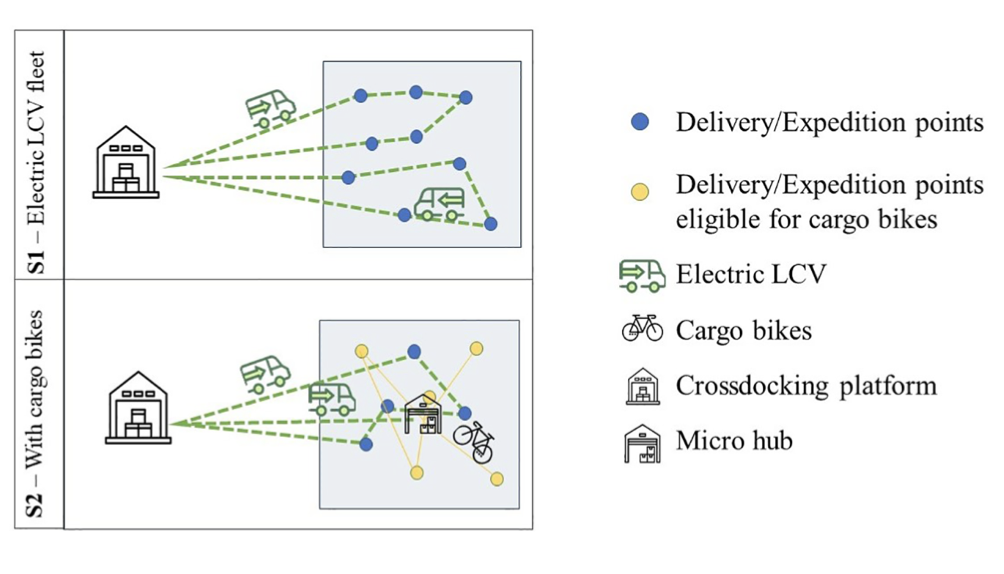A paper by researchers from SPLOTT – AME, Gustave Eiffel University, Champs-sur-Marne, France, focuses on the conditions for the financial sustainability of cargo bikes compared with electric light commercial vehicles (LCVs).
The analysis is based on real data from parcel service company DB Schenker. The dataset consists of 600.000 operations made in Paris over two months. Operations with electric LCV are assumed to be identical to conventional LCV; the cost comparison is based on a total cost of ownership approach.
Operations with cargo bikes assume that eligible shipments are first brought to micro hubs within the city by electric LCV, then delivered by cargo bike. The numbers and locations of micro hubs is optimized.

Results show that it is technically possible to pick up or deliver a large majority of the parcels in Paris by cargo bike (91%). However, it is not economical to convey all parcels by cargo bikes. On the one hand, it appears that a high density of operations is necessary for cargo bike operations to be competitive. On the other hand, a higher density of operations is found in places where land prices are higher, thus compromising the competitiveness of cargo bike operations, given that those require a micro hub at close hand.
The cost of renting micro hubs is a significant cost barrier. As the average price of commercial space in a city like Paris is high, it requires a minimum density of parcels to make cargo bike operations profitable.
The research raises the issue of pooling shipments between several operators. For example, using subcontractors specialized in cargo bike deliveries can represent an opportunity to pool flows.
As a final note from the researchers, it is crucial to keep in mind that even if cargo bikes became prominent, trucks would not be put out of the picture, as they would be needed, first, to supply the micro hubs and, second, to pick up and deliver oversize or overweight packages.
Source: Robichet, A., Nierat, P., & Combes, F. (2022). First and Last Miles by Cargo Bikes: Ecological Commitment or Economically Feasible? The Case of a Parcel Service Company in Paris. Transportation Research Record, 03611981221086632.

Remember – 120 years ago, not a single motor truck moved about anywhere: They’re not needed. At all.